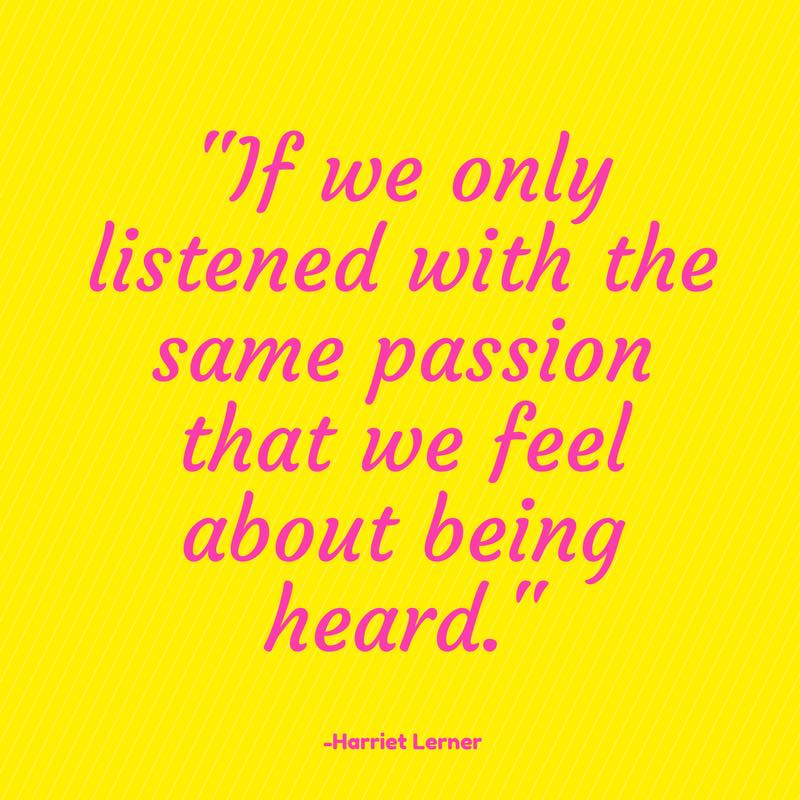Men and #MeToo — What Some Men May Not Understand About Women
/A close female friend recently sent this text message to me:
“I’m having a lot of trouble with some men who are terrible to women in their private lives, now being loud objectors to what’s happening in news around sexual harassment and assault (and the #MeToo movement). It’s hard not to be cynical. Do you think they honestly don’t know that they are the men that women warn each other about?”
Ohhh—this is a heavy question! And complicated. First, I’m glad that anyone is willing to publicly take a stand against sexual harassment and sexual assault. We need to responsibly and openly discuss this problem in order to change the social norms that make this behavior so prevalent and acceptable.
But as to her specific question? No, I don’t think many heterosexual men realize the full extent of how their behavior negatively impacts women. And for the record, we all behave badly at times—men, women, transgender, non-gender binary folks. But since this question was specifically about heterosexual men, that’s what I’m taking a stab at here.
I think in a lot of men’s minds, there are two different categories of “bad behavior” to women: 1) The really bad stuff, like overt sexual harassment and the physical act of sexually assaulting a woman, and 2) Typical “guy” dating actions, which they see as part of “playing the game.” Maybe they are too forward with a woman they find attractive, especially when drinking, despite the woman’s disinterest. Perhaps they emotionally manipulate women to sexually get what they want, but then become emotionally unavailable, dismissive, or disappear. Maybe these guys have a reputation of trying to sleep with many women, even if the women are all mutual friends. These are all specific examples from my friend who posed the question.
I think these men are trying to get their emotional, sexual, and self-worth needs met, but are unskilled in empathy. Men may realize that women warn each other about Category 1 men, but aren’t aware they are just as likely to warn each other about Category 2 men. While Category 1 has a clearer negative impact, they are both disrespectful and harmful. To some extent, I think our societal socialization of boys trains them not see the disrespect in Category 2 behavior. We train them away from sensitivity and empathy.
In my experience, many men give themselves the benefit of the doubt more than they would others, when engaging in bad behavior. They know the context and complexity of their own lives, but simplify that of others. This speaks to the fundamental attribution error theory in social psychology. He may be thinking—if he takes time for introspection or sees a therapist—that sure, he’s had interactions with women that weren’t great or may have been hurtful, but acting like that made sense in the context of the situation.
Many men can compartmentalize their belief systems and behaviors. I’ve been stunned by this in my private practice. Men who are kind fathers, devoted husbands, and committed to equality in the workplace, yet are repeatedly cheating on their partners. They place their cheating in its own mental compartment and treat it as something that’s not really “them.” I think this goes hand-in-hand with some men overestimating their ability to read the emotional nuances of a situation, and thus diminishing their emotional impact.
All of this is easier to do today in Category 2 than Category 1, because there are far fewer potential negative, personal consequences.
The introspection piece is what I think is most missing. If we want to move forward from the latest scandals and make society better for women, men must engage in self-reflection. This means staying present with the discomfort of thinking about the shitty things they don’t like about themselves, and their triggers and patterns that hurt others. Until they have the courage to really look at their behaviors and sit with that visceral discomfort, instead of blaming, distracting, or numbing, they’ll struggle to feel genuine empathy for others. At this level, I am not referring to cognitive empathy and assuming knowledge of the experiences of others, but actual *felt* empathy.
So I think there are three factors mixed together: A justification of bad behavior, a lack of felt empathy for the emotional impact of their actions, and not acknowledging the nuances of being in a female body in American society. And honestly, this last one is particularly understandable. I don’t understand many of the nuances of what it means to be male, just like I don’t understand many of the nuances of what it means and feels like to be a black woman in our society. It’s hard to walk in someone else’s shoes, who has had different experiences, and was socialized differently. But we need to genuinely try. To read stories, ask questions when appropriate, and listen.
That last one—LISTENING—is something everyone can do more of, particularly in this context, men. It’s uncomfortable to stay mentally and emotionally present with someone, when you want to be right or show that you’re smart, feel justified in your anger, or are just uncomfortable with the emotions being expressed. Admitting that there are important aspects of women’s experiences in American society, that men don’t even know that they don’t know, would be a great starting point.
~Dr. Jenn Gunsaullus, San Diego Sociologist, Sexologist, & Sexuality Speaker

































